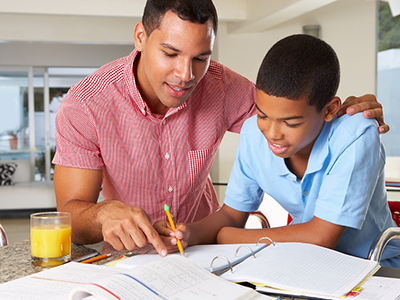Helpful parenting tips

As parents we can adopt ways of making things easier in the parenthood world. Here are a some useful tips:-
Reduce Stress. Excessive stress and tension in your home (for example, arguing, fighting, too many lessons/activities, etc.) can have a negative effect on your child. Look at ways to reduce stress. For instance, plan some fun time each day to read a story, go for a walk, watch a favorite TV program together, or listen to music. Parents also need to be careful not to express frustration or anger by arguing or raising voices around their children.
Make a Routine. Establish a routine by setting specific times for meals, homework, quiet time, and bedtime. Help your child establish a bedtime routine, which may include a bath and reading a story, or just time to chat.
Work Together. If parents are not consistent, it can be very confusing for your child. Try to agree on ways of handling your children, for example, both agree to limit giving reassurance or both follow through on setting limits, such as not having your child sleep in your room, and be consistent in terms of rewards.
Give Consequences. It is important that you set expectations and limits for your child, and follow through on consequences for inappropriate behavior such as losing television privileges for not completing chores. Set clear limits and consequences for inappropriate behavior, and discuss this in advance with all family members at a calm time. Children are happier when they know the rules and what happens when they break them! Be sure to give rewards and praise when your child is adhering to expectations.
Be Supportive. Recognize that it is difficult for children to face their fears. It is important not to laugh at your child or minimize his or her fears. Rather, let your child know that it is normal to have fears, we’re all afraid of something, and that it is possible to face and overcome your fears. When your child is upset, make sure to listen to him or her, to send your child the message that it’s okay to talk about feelings. Let your child know that he or she is understood, and help him or her figure out ways to cope with upsetting situations. It can also be helpful to use some humor when dealing with the world. We all benefit from finding the humor in things and being able to laugh at life’s mistakes.
Encourage Independence. Although it is tempting to want to do things for your child, especially when he or she tends to be nervous and fearful, it is better to let kids do things for themselves. How else will they learn the skills and abilities to cope with life? Encourage your child to try things on his or her own, take some risks, and do things for him or herself. This can include giving him or her responsibilities around the house like cleaning own room or setting the table. It can also include helping your child brainstorm ways to deal with problems or difficult situations such as how to handle an argument with a friend or make up marks at school for missed assignments. Encouraging independence does not mean you can’t be supportive, but it means that you shouldn’t take over or do everything for your child.
Avoid Giving Excessive Reassurance. It can be hard not to give your child reassurance, especially when he or she is scared or anxious; however, giving constant reassurance prevents your child from learning how to cope on his or her own. Teach your child to answer his or her own questions. Model how you think through problems or challenges, which helps your child learn to do it him- or herself.
Build Self-Confidence. It is important to praise your child for his or her accomplishments and for facing fears. Involve your child in activities that help him or her feel proud. Find activities that reinforce that he or she is good at something like sports, music, or art and helps instill a sense of belonging and pride such as cadets, scouts or girl guides, school helper. You can also give your child responsibilities around the house and let him or her be in-charge of something at home for example, making sure the flowers gets watered everyday.
Realistic Expectations. It is important to have expectations for your child and help him or her meet those expectations; however, understand that an anxious child will have some trouble doing things, and may need to go at a slower pace. Help your child break down goals into smaller steps that he or she can accomplish. It is important that your child is taking steps forward, even if the steps are small. Try not to push too hard or too fast, but let your child go at his or her pace.
Reactions. Although it is important to be understanding and caring, do not overreact or let anxiety trick you into thinking that something is too hard or impossible for your child for example, thinking it’s too hard for your child to sleep alone. Keep things in perspective. Yes, it might be challenging, but it can be done. On the other hand, sometimes we have a hard time understanding our children or why something is so difficult for him or her. When we don’t acknowledge that our child is having a hard time with something the child may try to hide it and suffer alone or the symptoms may become more pronounced, in order to get the attention he or she needs.
Dealing with Yourself. Parenting can be difficult. Make sure you manage yourself well. Do some things for yourself, run a hot bath, read a book when the kids go to bed, talk to a friend about how you’re feeling, go for a walk, or whatever helps you keep a positive perspective. Remember the basics: eat well, get enough sleep, and exercise! Also, give yourself permission to take time off. You can’t be helpful to your child if you don’t take care of yourself. You also need to be careful not to pass fears on to your children. Try to present a neutral reaction to situations and let you child know it’s safe to explore things.
Take Risks. Children need to try new things and take some risks, in order to build confidence and develop the necessary skills for dealing with the world. Encourage your child to try some experiments, such as making a phone call, talking to an unfamiliar classmate, or asking a question to a store clerk. Remember, you can model brave behavior by trying new things too!
